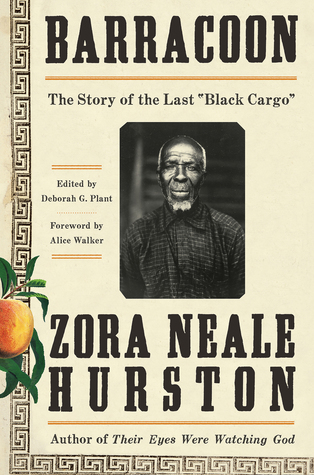More on this book
Community
Kindle Notes & Highlights
Read between
April 26 - April 30, 2024
Tall weeds choke the dirt road and scrape against the sides of the car. It doesn’t help either that I step out into an active anthill. “I don’t know about y’all,” I say, “but I don’t even believe this.” I am used to the haphazard cemetery-keeping that is traditional in most Southern black communities, but this neglect is staggering. As far as I can see there is nothing but bushes and weeds, some as tall as my waist. One grave is near the road, and Charlotte elects to investigate it. It is fairly clean, and belongs to someone who died in 1963.
“Bitter over the rejection of her folklore’s value, especially in the black community, frustrated by what she felt was her failure to convert the Afro-American world view into the forms of prose fiction, Hurston finally gave up.” —Robert Hemenway
I realize I must honor the dead, but between the dead great and the living starving, there is no choice.
“I was surprised to learn she died of malnutrition.” Dr. Benton seems startled. “Zora didn’t die of malnutrition,” he says indignantly. “Where did you get that story from? She had a stroke and she died in the welfare home.” He seems particularly upset, distressed, but sits back reflectively in his chair: “She was an incredible woman,” he muses. “Sometimes when I closed my office, I’d go by her house and just talk to her for an hour or two. She was a well-read, well-traveled woman and always had her own ideas about what was going on . . .”
“When I knew her, in the fifties, she was a big woman, erect. Not quite as light as I am [Dr. Benton is dark beige], and about five foot, seven inches, and she weighed about two hundred pounds. Probably more. She . . . ” “What! Zora was fat! She wasn’t in Van Vechten’s pictures!” “Zora loved to eat,” Dr. Benton says complacently. “She could sit down with a mound of ice cream and just eat and talk till it was all gone.” While Dr. Benton is talking, I recall that the Van Vechten pictures were taken when Zora was still a young woman. In them she appears tall, tan, and healthy. In later newspaper
...more
Charlotte locates a letter of Zora’s she has copied that carries the address: 1734 School Court Street. We ask several people for directions. Finally, two old gentlemen in a dusty gray Plymouth offer to lead us there.
“And did she live there by herself?” “Yes, until they took her away. She lived with—just her and her companion, Sport.” My ears perk up. “Who?” “Sport, you know, her dog. He was her only companion. He was a big brown-and-white dog.”
“I am not tragically colored. There is no great sorrow dammed up in my soul, nor lurking behind my eyes. I do not mind at all. I do not belong to the sobbing school of Negrohood who hold that nature somehow has given them a lowdown dirty deal and whose feelings are all hurt about it. . . . No, I do not weep at the world—I am too busy sharpening my oyster knife.” —Zora Neale Hurston, “How It Feels to Be Colored Me,” World Tomorrow, 1928


